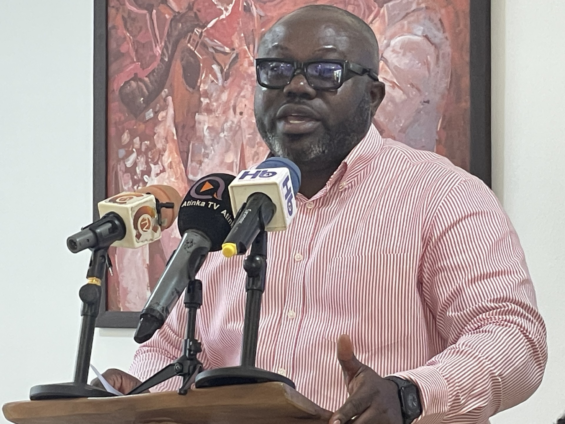Mr Stephen Caleb Opuni, Africa Regional Director, IDF Foundation, an international organisation that promotes education, has urged journalists to emphasise youth voices in leadership and governance issues in the country.
He said that youth voices were important in decision-making policies and initiatives and should be prominently featured rather than sidelined.
Mr Opuni said this at the IDF Youth Speaks Press Briefing in Accra, which commemorated UN International Youth Day and the IDF Foundation's 15-year presence in Ghana, advocating education growth and development.
The event brought together students alumni of IDF Foundation’s Rising Schools project, a project implemented by the foundation to support low-fee private community schools, to share their views on how to champion youth voices.
He stressed that practitioners must be purposeful about creating spaces for young people to express their views and participate in developing policies and reforms.
“Oftentimes, the youth are objects of our programming, of our policies, of our developments. We need to ensure that their voices, their aspirations, as well as their interests and ideas are part of shaping the future of Ghana and the African continent.”
“Let us help to create these platforms where youth are around the sitting table, making sure that their futures are being taken care of, and have a part to play in shaping what the future looks like and also that the future reflects their aspirations,” he added.
According to Mr Opuni, for the youth to participate in local and global conversations, they must first be invited to the table within the school setting, then with local actors and organisations.
A level 200 Chemistry student at KNUST and an IDP Foundation Rising Schools Project alumni, Ms Latifah Mudasiru, advocated for the establishment of mental health awareness and counseling programmes for youths, particularly students, to assist them deal with depression and boost their morale.
She said that young people frequently struggle with worry and stress and lack access to support services.
“Mental health awareness and counseling programmes in schools can help students deal with personal experiences and trauma from home or their environment as they come to school. This would enable them stay focused in achieving their goals,” she added.
A KNUST environmental science graduate and Rising School Project alumni, Ms Margaret Awugyi, explained that the youth were sometimes hesitant to speak up due to cultural stigmas and perceptions that elders do not value their opinions, even on issues that directly affected them.
Latest Stories
-
Vola Money launches Remittance-as-a- Service platform to support global money transfers
3 minutes -
Asante Gold Chirano Limited awards 31 tertiary scholarships to brilliant but needy students
7 minutes -
National FMCG Summit and Awards 2025 ignites future of consumer goods
13 minutes -
AUCB and HAEC host innovative 2025 Capstone Projects
15 minutes -
GCYE launches National Business Agenda to tackle youth and women’s economic exclusion
16 minutes -
Government committed to stabilising cedi at GH¢10 to dollar – Seth Terkper
19 minutes -
Elder Abuse Awareness: Foundation advocates implementation of National Aging Policy to safeguard rights the elderly
21 minutes -
Real Madrid eye summer move for Ghanaian defender Oscar Oppong
24 minutes -
Ghana validates first National E-commerce Strategy
34 minutes -
Dagbon overlord applauds Mahama’s Code of Conduct for his appointees
35 minutes -
You’ve my undivided support in transforming Ghana – Yaa-Na tells Mahama
38 minutes -
Here’s the list of 12 suspects to be charged over GH₵548m NSS ghost names scandal
51 minutes -
Airwave Apocalypse or Political Performance? A Frequency of Suspicion
56 minutes -
Abstinence education alone can’t reduce alarming teenage pregnancy rate – CSOs
60 minutes -
A/R: Duase drivers block road in protest arrest of drivers charging unapproved fares
1 hour

